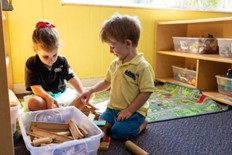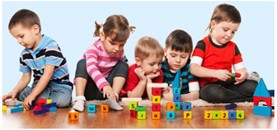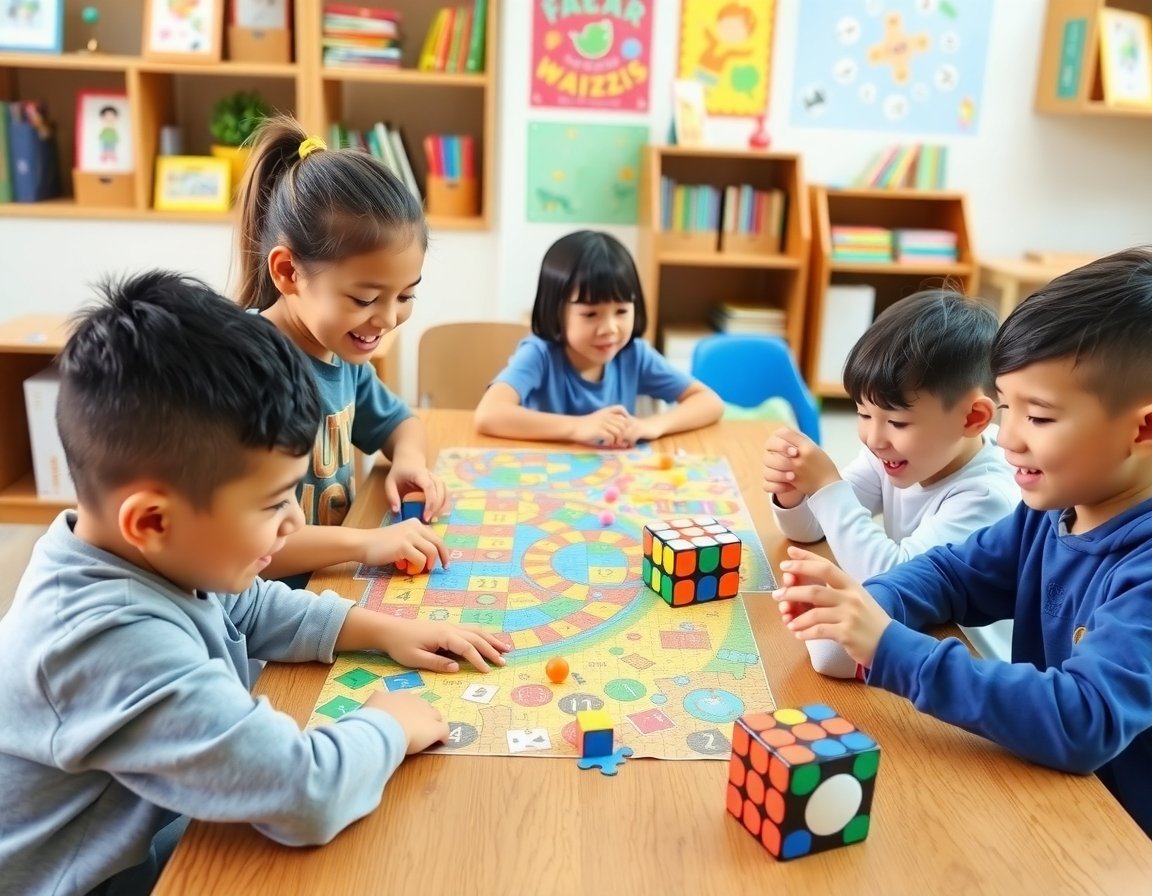In today’s digital age, the meaning of education is not just limited to books. The attention span of children is decreasing day by day, but their curiosity and capacity to understand is increasing equally fast. Keeping this new challenge in mind, the format of education has also evolved. Now learning means “interactive learning” – where studying becomes fun and motivation becomes fun. Educational games are a powerful part of this change. These games are not just games – they are tools that develop the mind of a child, without any pressure. In this article we will explain what educational games are, why they are important, and which are the best games that are perfect for your child.
What is an Educational Game?

An educational game is a game that is both fun and has a hidden learning process behind it. These games are not for time-pass, These are carefully designed tools that help children’s minds grow logically and creatively. When a little child is busy with a colour-matching or puzzle game, he is not just playing a game but he is observing, taking decisions, analysing and creating coordination between his mind and fingers. The real magic of educational games is this – learning is so subtle that a child does not even realize that he is studying. And when something is understood without force, then its impact is lifelong.
In today’s modern era, educational games have become digital as well as traditional. Digital educational games like Khan Academy Kids, Duolingo ABC, MentalUP, ABC Kids or apps like ClassDojo are tools that run on mobile and tablets where animated characters, sound effects and colorful levels attract children. When a child pronounces a letter correctly or solves a puzzle, he gets stars, rewards or unlocks – which keep the excitement alive within him. On the other hand, traditional games like memory cards, alphabet blocks, flashcards, spelling boards and number-based puzzles are options used in the physical world that make learning enjoyable even without a screen. The base idea behind every educational game is to transfer skill or knowledge through fun. This means that whether the child is 3 years old or 12 years old, games are designed according to his level where the learning goals are clear.
The structure of these games is generally like this where the child makes level-wise progress. Starting is easy and then gradually the complexity increases. In this process the child faces challenges, makes mistakes, learns and improves – exactly the same pattern which happens in real life learning. And all this happens without any classroom pressure, marks or fear. Educational games make children active learners – where they do not just listen or watch, but get involved themselves. When they get the immediate result of every action, whether it is right or wrong, their brain registers that thing immediately. That is why today every smart parent wants that instead of crying while learning, their child should learn through interactive educational games – where there is knowledge, logic, and most importantly fun.
Why are Educational Games necessary?

In today’s modern era where every small and big thing is connected with technology, it is not enough for children to just study books. Their brain is now developing with the habit of visuals, interaction and instant feedback. In such a situation, if we keep teaching them through traditional learning methods like cramming or lectures, then neither will they concentrate nor will they be interested. Educational games have become a natural solution to this problem. These games make any boring concept interesting. When a child understands shapes, numbers, alphabets or science topics through an interactive game, he enjoys it and has no fear of learning.
And when he finds something interesting, he feels like doing it again and again, and the same repetition makes learning strong. Apart from this, games make children active – they have to make decisions, observe, sometimes move after thinking. All these things sharpen their mind and also increase their confidence. Another important reason is that today every parent wants their child to use the mobile but it should not cause any harm to him. Educational games are the best answer to this question, where there is use of mobile and there is also benefit in learning from it. When a child learns something new through a game, his mind becomes happy and his mind develops – and that is why in today’s time educational games have become a necessity and not just an option.
Benefits of Educational Games – When children learn and smile too

When we get enjoyment in the process of learning something, its impact is always deeper. In the case of children, this becomes even more important, because their brain is like a sponge – they never forget the things they learn with enjoyment. The biggest benefit of educational games is that they make a boring study interesting. When a child traces letters on a colourful app, or solves a maths question in the form of an adventure game, his focus naturally gets fixed on that concept. In this process he clears his concepts without any pressure. It is not just limited to academics – these games also help in his overall development, like critical thinking, memory boost, faster decision-making, hand-eye coordination and even emotional intelligence.
Another special thing is that when children learn through games, they do self-paced learning. Meaning they do not have any rush, they are not under any pressure of any test or marks – to learn whenever they wish, to correct any mistake, and to try again after every mistake – all these things develop in them the quality of becoming a resilient learner. When they get rewards for completing every level, like stars or trophies, their confidence naturally gets boosted. In this process they learn to trust themselves.
It is a relief for the parents too, as they know that their child is doing productive work even during screen time. These games act as a guide for them that not only imparts knowledge but also teaches discipline and patience. Due to all these reasons, educational games have become a part of the toolkit of every modern parent and teacher today – where the child is laughing, playing, learning without stress, and in this the formula of real success is hidden.
What do educational games develop?

When a small child learns while playing, he is not just understanding a topic or concept – he is developing his entire brain and personality. The learning that takes place through educational games does not happen at the surface level, it deeply activates different areas of the mind. When a child plays a memory game where he has to match cards, he is not just remembering the image or word – his observation skill is getting activated, both short-term and long-term memory are getting sharpened. When he has to make a decision in a game about what should be the next step, or which option is right – then he is practicing decision-making and logical thinking without any external pressure. These qualities are not only found in the school syllabus, but are useful in real life.
Apart from this, educational games also play an important role in the emotional and behavioral development of children. When they lose during the game or fail at some level, and then try again – then they learn a skill called “resilience”. They understand that making mistakes is normal and doing the right thing is also an important part of the process. In this way, they develop patience, self-motivation and adaptability. If the game is multiplayer, then traits such as communication skills, teamwork and sharing are also nurtured. When they compete with others or help them, they also build social skills – without consciously thinking.
Along with this, with the mix of visual learning and audio stimulation, their brain also improves multitasking and sensory coordination. In today’s digital generation, where there are a lot of distractions, through these games, a child learns to focus and pay attention to one thing. That is why educational games are not just an extracurricular activity but a full-fledged developmental tool that shapes every dimension of a child’s mind, heart, and behavior.
Top Best Educational Games for Kids

Khan Academy Kids Superstar Of The Digital World Of Learning
Khan Academy Kids is a name that every modern parent should have on their phone or tablet. This application has become a complete educational universe for children from childhood to 8 years. Everything from alphabet learning to numbers, colours, phonics, basic maths, problem solving, even emotional development – is taught through beautifully animated characters. What makes the app most special is its design – there are no advertisements, no unnecessary distractions. Children are exposed to a secure and stress-free environment where they don’t even feel that they are “studying”.
Khan Academy Kids includes interactive lessons, mini-games, quizzes and storybooks for each topic. When a child traces a letter or chooses the correct sound, he or she immediately gets praise – like “Great job!” or stars, which boosts his or her confidence. The app interface is so simple and engaging that even a 3-year-old can navigate it without help. The voice-over feature explains each option, which he or she learns to choose on his or her own.
There is also a progress report system for parents in the app – where they can see in which area their child is strong and which concept needs a little more practice. This application not only improves reading and maths skills but also becomes a perfect partner for creativity, curiosity and self-paced learning. When the child studies with cartoon friends, he neither gets bored or distracted – he just grows a little bit daily in a natural flow. That is why we can confidently call Khan Academy Kids – every child’s digital guru.
MentalUP Make your brain in Genius mode
If you want your child to develop not only knowledge but also sharp thinking, fast decision-making and deep concentration, then MentalUP is a scientifically backed educational game designed for those parents. This app is different from normal educational apps because it is not limited to any one subject or skill. Its core focus is on brain development – where the child trains his brain muscles while having fun. MentalUP basically works like a fun-based brain gym which works on areas like logic, memory, attention, visual intelligence, problem-solving and analytical thinking.
MentalUP’s games are colorful and attractive, but are extremely logical and scientific from within. When a child solves a shape-matching or missing pattern game, he is not just clicking on the screen – his mind is analysed, thinking, and reaching a new conclusion every second. This habit also reflects on his real life behaviour – like concentrating in school, thinking of answers to questions, or doing creative problem-solving with his toys at home. Another speciality of this app is that the levels and exercises are designed according to the age of each child. Meaning a 4 year old child and a 10 year old child both can use it according to their different mental capacities.
MentalUP is like a blessing for parents, because in this the screen time is productive and the child also remains busy. The biggest thing is that when a child plays a game 2-3 times and sees that his score is improving, he automatically gets motivated and a feeling of “I can do even better” develops within him. This app shows that studying is not boring if done properly, learning can also become an adventure. So if you want to make your child’s brain smart, then MentalUP is a must-have app that takes both fun and future together.
ABC Kids For Early Learning Superheroes
ABC Kids is an educational game specially designed for young children who are just entering the world of learning. The interface of this app is so colorful, friendly and simple that even children aged 2-5 years can use it without any adult help. It includes features like alphabet tracing, phonics sounds, matching games and letter identification that help develop early literacy skills. When a child traces a letter with his finger or chooses the correct alphabet by listening to the sound, he is learning through an interactive and engaging process. The best thing is that there are no advertisements, which is very rare in today’s time. The child explores on his own without any distraction and his learning progresses naturally. Every activity is followed by praise and reward, which keeps the motivation high. ABC Kids is the perfect tool for parents who want their child to treat studies as a game from an early age. This app becomes a digital friend who studies as well as entertains.
Conclusion
Childhood has changed in today’s digital age. Children spend more time around screens than before and their attention is diverted from traditional books quickly. In such a situation, we have to upgrade their learning methods as well. Educational games have become not just an alternative but a smart and modern solution – where the child understands concepts in a fun way and his personality also develops. For every parent who wants his child to learn naturally, without stress and without crying while learning – these apps open a new path for them. There is discipline, dedication and digital comfort in them.

